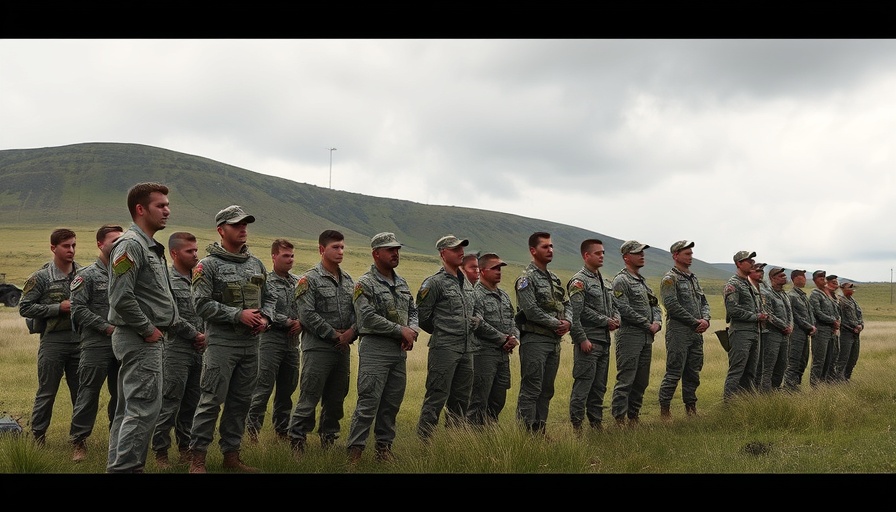
The Rise of Drone Technology in Military Training
As military technology continues to evolve, the integration of drones has transformed the landscape of combat training and strategy. At Camp Pendleton, Marines are honing their skills in both offensive and defensive drone operations, reflecting a global shift in military tactics. Understanding these developments is not only crucial for military personnel but also for civilians interested in the broader implications of drone technology in warfare.
Marines at the Forefront of Tactical Evolution
For Cpl. Christopher Magana Pinawin, a Marine with the 2nd Battalion, 4th Marines, the shift from hobbyist to military drone operator has been rapid and impressive. “I didn’t think [drones] would be so widely used,” he reflects, showing how personal history can intersect with military innovation. This sentiment underscores a generational change as drones are no longer just toys. They are pivotal instruments in modern warfare.
The Training Exercises at Camp Pendleton
The recent drone integration training at Camp Pendleton involved simulated scenarios where Marines practiced counter-drone strategies amidst make-believe attacks. By employing jamming equipment and electronic warfare tactics, these exercises prepare Marines for scenarios likely to be encountered in future conflicts. The training scenarios are thoughtfully designed, ensuring that even if a drone is disabled during practice, it remains intact for further use—an illustration of resourcefulness in military exercises.
Implications of Drone Warfare: A Global Perspective
Understanding the relevance of drone warfare requires looking at global conflicts such as those between Ukraine and Russia. Lt. Col. Nick Freeman, director of the division’s schools at Camp Pendleton, emphasized that the role of drones in these battles is not merely theoretical. “We have long been interested in achieving this level of scale,” he remarks, indicating a purposeful approach to drone integration aimed at enhancing operational effectiveness.
The Challenge of Counteracting Drone Threats
As the benefits of drones become increasingly apparent, so do the challenges associated with their use. The integration of drones presents a dual-edged sword; while they enhance offensive capabilities, they also require Marines to develop effective countermeasures against enemy drones. This is particularly important as technology continues to advance, paving the way for more sophisticated unmanned systems. Thus, understanding how to counteract potential threats is just as vital as learning how to operate drones effectively.
Future Trends: What Lies Ahead for Drone Technology?
The future of drone technology promises even more integration into military strategies. With continued advancements, the military could see the convergence of drones with artificial intelligence, enabling autonomous operations that can make real-time tactical decisions. This prospect raises questions about the ethical implications and necessitates discussions on the rules of engagement in modern warfare.
Social Perspectives: The Community's Role
For those living in and around Bakersfield, CA, the advancements in drone technology at military bases like Camp Pendleton can foster a sense of community engagement. As military exercises often transition to public demonstrations, civilians have the opportunity to witness firsthand the evolution of modern warfare. This transparency builds a bridge between military and civilian sectors, encouraging discussions about technology's role in society.
Actionable Insights: What Civilians Should Know
As the public discourse surrounding drones evolves, staying informed about their implications will benefit both the military and civilian populations. Understanding the basic concepts of drone technology can empower individuals to engage thoughtfully in conversations about security, ethics, and technology's future. Knowledge is a powerful tool in bridging gaps between military advancements and their societal impact.
Conclusion: Embracing Change in Military Tactics
The training conducted at Camp Pendleton is more than just a military exercise; it represents a significant cultural shift in how the military approaches modern warfare. Drones have become indispensable, reshaping tactics and strategies to face new global threats. As citizens, being aware of such changes helps foster a greater understanding of the military's role in national security and encourages informed discussions about the future of technology in warfare. Engage with your community, and explore how the evolving landscape of military training may impact local and global warfare.
 Add Row
Add Row  Add
Add 



Write A Comment